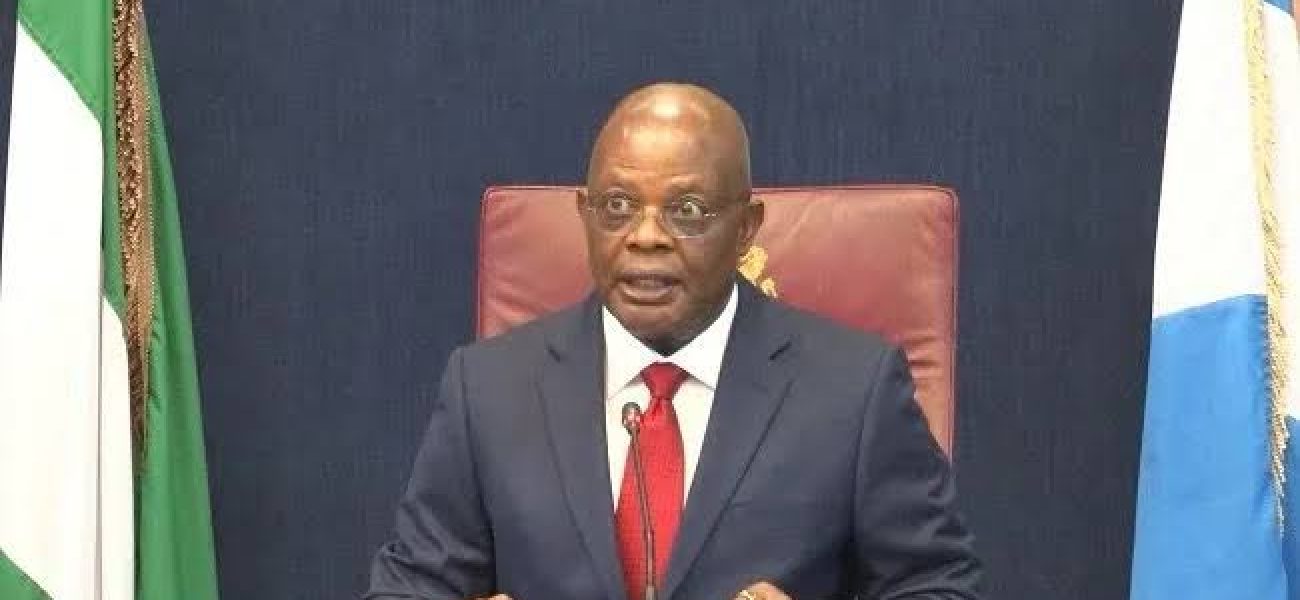The ongoing state of emergency in Rivers State continues to raise one constitutional quagmire after another. The recent submission of the Rivers State Appropriation Bill by President Bola Ahmed Tinubu to the National Assembly presents not only a legal puzzle but a troubling democratic precedent. In the vacuum created by the absence of a functioning State House of Assembly and a legally recognized executive authority, the federal government’s exercise of legislative and budgetary powers on behalf of Rivers State is raising fundamental constitutional and governance questions.
Under Section 305 of the 1999 Constitution (as amended), the President is empowered to declare a state of emergency in any part of the federation when there is a breakdown of public order and safety. Crucially, Section 305(4) stipulates that once such a proclamation is made, the National Assembly assumes legislative authority over the affected state. However, nowhere does the Constitution envision the President—as head of the federal executive—taking over the role of a state’s chief executive officer, especially in the context of presenting a budget.
It has been clearly and repeatedly pointed out that Section 305 does not grant the President the authority to suspend either the State House of Assembly or the Governor, as has been done in this instance. The Constitution sets out specific and strict conditions under which a State House of Assembly can be suspended, and these are outlined in Section 11(4). According to this provision, only the National Assembly is permitted to take over the legislative functions of a State Assembly, and only when the Assembly is incapable of carrying out its responsibilities. Even then, the Constitution makes it clear that such powers exercised by the National Assembly are meant to be temporary and must cease once normal conditions are restored. It follows, then, that Section 305—cited by the President—does not authorize the appointment of a Sole Administrator.
This is the heart of the conundrum: should the President of Nigeria be presenting a State’s budget, effectively stepping into the shoes of a Governor? Or should the responsibility lie with the interim administrator, however politically contentious their appointment may be? Even more perplexing is the question of whether a sole administrator—a position not expressly contemplated by the Constitution—can validly formulate and defend a fiscal plan for an entire State.
In presenting the Rivers State Appropriation Bill, President Tinubu appears to be navigating a governance vacuum by pragmatic means. Yet, this step may have constitutional and political costs. While the National Assembly is permitted to perform legislative functions on behalf of a State under emergency, this role was never meant to legitimize federal executive dominance. The constitutional silence on executive authority during such emergencies suggests a preference for minimal interference, not federal interference.
Even within the National Assembly itself, divergent approaches to the bill underscore the uncertainty. The Senate passed the bill through to second reading, treating it much like any standard legislative matter. By contrast, the House of Representatives referred the same bill directly to its ad-hoc Committee on the State of Emergency in Rivers State, bypassing second reading—a procedural anomaly in normal legislative practice. This dissonance reflects a deeper institutional hesitation: how does one legislate for a state under emergency without fully compromising the federalist structure?
This issue is not without precedent. Past declarations of state of emergency, in Plateau and Ekiti States, have witnessed similar tensions between federal oversight and state autonomy. But the Rivers situation stands out for its intensity and the starkness of the vacuum. The suspension of the state legislature and executive raises urgent questions not only about democratic legitimacy, but also about how long emergency governance can substitute for representative institutions before it becomes authoritarian in effect, if not in intent.
It is imperative that constitutional actors, particularly the judiciary, provide guidance on the boundaries of executive and legislative power during states of emergency. If left unchecked, the current framework risks establishing a precedent where constitutional provisions are sidelined and federal balance is eroded. Nigeria must not allow emergency governance to evolve into a convenient shortcut around constitutional order. The real task is not merely to manage the Rivers State crisis through temporary measures, but to re-establish lawful, accountable, and democratic governance consistent with both the spirit and the letter of the Nigerian Constitution.

